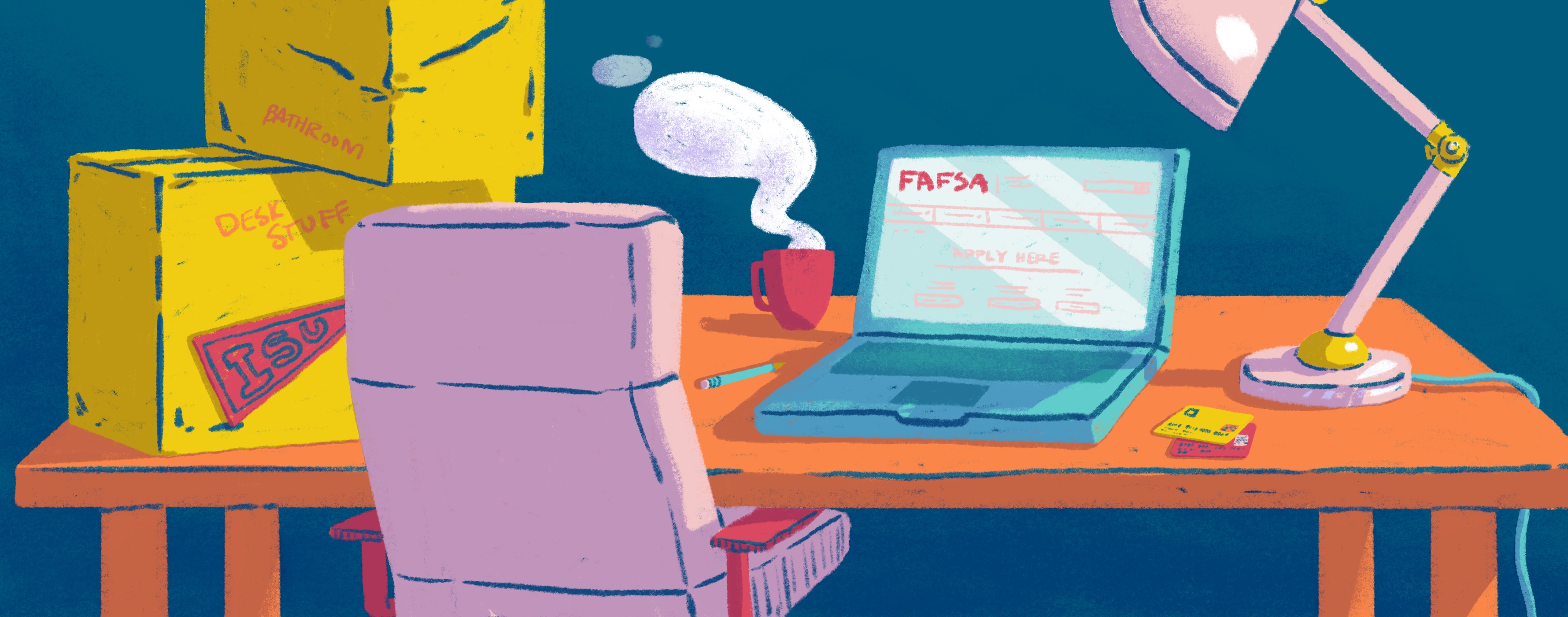Filling Out The FAFSA
The Free Application for Federal Student Aid (FAFSA) is an application for financial aid made up of scholarships and grants that the government awards to students based on their needs.
Unfortunately, many students who would qualify for FAFSA funds don’t even complete the application. A recent study on found that $3.75 billion in financial aid went unclaimed in by the high school graduating class of 2021. That means more than 800,000 students were eligible but didn’t claim their fair share of FAFSA grants and scholarships. The average amount awarded hovers around $3,900. Not bad for about a half-hour of work, right? Simply filling out the application is half the battle for most people. If you’re getting ready to fill out the FAFSA, follow these tips to make it quick, painless, and worth your time.
The average amount awarded hovers around $3,900. Not bad for about a half-hour of work, right? Simply filling out the application is half the battle for most people. If you’re getting ready to fill out the FAFSA, follow these tips to make it quick, painless, and worth your time.
Are you curious about filling out the FAFSA? Try the FAFSA Coach. It'll walk you through what to expect.
Get Your Documents Together
The FAFSA application requires you to prove your family’s financial situation, so make sure you have all of the documents you need before you start the application. That way, you won’t have to stop, start, and track down last year’s tax returns. Here’s what you should have on hand:
-
Your social security number (and your parents’).
-
A Federal Student Aid Identification Number or FSA ID (this is a login that you can create here.).
-
Your driver’s license or another form of government-issued ID.
-
If you're younger than 24, your and your parents' 2020 tax returns (read this to know why).
-
Bank account statements and any other asset records.
-
Records of untaxed income such as child support, disability benefits, and health savings accounts.
-
The code for each school you want to apply to. You can find them here.
Fill Out the Application
Now you’re ready to start filling out the FAFSA application. The good news is that you only need to fill it out once, and then you can use your school codes to submit the application to the schools you want.
Send your application to all the schools you’re considering. You can apply to up to 10 schools through the FAFSA website. It’s free and your future eligibility for financial aid is tied to your application. You can even send an application to a school that hasn’t accepted you yet. If you’re not accepted, they’ll just disregard your application, so it’s no big deal.
Fill out the FAFSA even if you don’t think you qualify. Your eligibility doesn’t just boil down to how much you make, but how much your parents make, how much you have in savings, and how much your family would be expected to contribute to your education. Even if your parents make six figures, you won’t be automatically disqualified from getting aid. Your FAFSA can also be the key to low-cost student loans. If you don’t qualify for a grant or a grant doesn’t cover the full cost you need, your school can use your FAFSA to help you find low-interest federal loan options to pay your way.
When filling out the FAFSA, don’t leave spaces blank. Blank spaces can lead to processing delays. Fill out as much as you can, and then use zeroes or choose “Not Applicable” to fill in fields that don’t apply to you.
Advice for filling out the FAFSA: Do it! Lots of grant money (that's free money) goes unclaimed every year, and some of it could be yours. You have nothing to lose by applying.
The FAFSA makes college more affordable for millions of students every year. Every school has grants and scholarships available to students—and all they have to do is ask. By taking your time and filling out the FAFSA before you start school, it could mean less in student loans and more in your bank account.
Calculate the price tag and create an expenses list for a year at college with the Cost of College Coach.
This article has been republished with permission. View the original article: Filling Out the FAFSA.